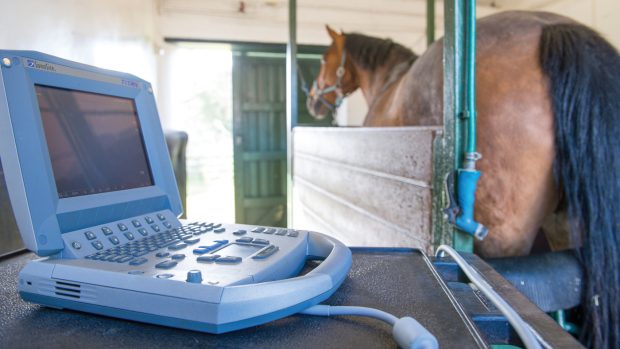Breeders hoping to get hold of frozen semen from Hickstead, the mighty showjumper who collapsed and died while competing in Verona (news, 7 November), are likely to be disappointed.
H&H has learnt that the amount of semen available from the stallion – who won more than $3.7m ( £2.3m) during his illustrious career – is negligible.
North American agent Francis Berger, who is based in Ontario, Canada, has received over 500 emails from breeders prepared to sign a blank cheque for a straw of semen.
Mr Berger told H&H: “The demand has far outstripped the supply. There is none left in North America and only a very limited amount left in Europe. At this stage, we are unsure of exactly how much and to whom it might go.”
Hickstead has only been certified as an approved stallion by the Dutch Warmblood Breeders’ Association since winning Olympic gold three years ago.
As a two-year-old he was refused studbook approval on the grounds that he was too small (at 16hh) and not powerful enough to make a top grand prix horse.
Since the Olympics, only a limited amount of his semen, between 20 and 40 straws a year, has been available, at a cost of $5,500 ( £3,420). This has resulted in fewer than 100 foals worldwide.
“Eric [Lamaze, his rider] was concerned about the risk of Hickstead injuring himself during collection,” said Mr Berger. “Because of his size, there were concerns about the strain it would put on his back.”
It had been anticipated that the 15-year-old would have retired from competition in a year or so to breed full-time.
During a press conference Eric Lamaze paid tribute to the horse who “changed his life”.
“There have been many great horses but I think any rider will concede that Hickstead was the best in the world,” he said.
“I hope all riders get a chance to experience what I experienced on such a horse. It changes your life and career.”
A post-mortem examination confirmed the cause of death was an acute aortic rupture that led to heart failure.
This news story was first published in the current issue of Horse and Hound (17 November 2011)



